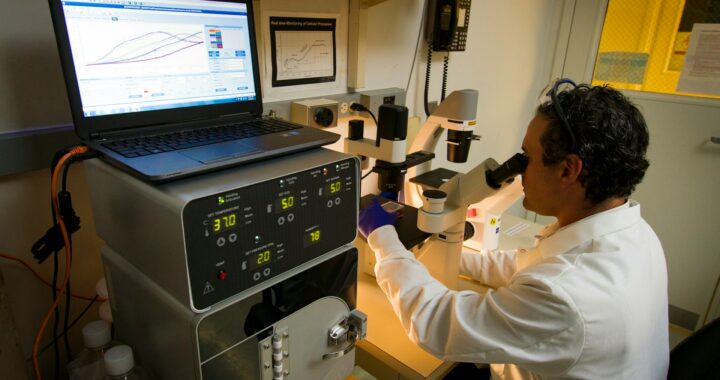
What Are The Risks Of Vitamin D?
Are you concerned about the long-term effects of Vitamin D supplementation? Recent research has revealed that high levels of Vitamin D could lead to calcification of the arteries, a serious cardiovascular issue. You need to know if this is true and what factors can increase your risk.
Read on to find out more about Vitamin D’s potentially dangerous side effect.
Calcification of arteries is a common and serious issue that can lead to heart disease, strokes, and other health complications. There is some evidence to suggest that high doses of Vitamin D may contribute to arterial calcification, but the research is still inconclusive, and more studies are needed to fully understand the link between Vitamin D and artery calcification.
Vitamin D is an essential nutrient necessary for maintaining strong bones and overall health, and it is important not to overlook its benefits while taking precautions to avoid excessive intake. If you have concerns about the impact of Vitamin D on your health or are considering taking Vitamin D supplements, it is recommended to consult with your healthcare provider.
What is Vitamin D?
Vitamin D is a fat-soluble vitamin that plays a crucial role in regulating calcium absorption and promoting bone health. While a deficiency in vitamin D can lead to weakened bones and muscle weakness, excessive vitamin D can cause the calcification of arteries.
When vitamin D levels are too high, the calcium in the blood can bind to the walls of arteries, forming plaque that hardens and narrows the arteries. This puts added strain on the cardiovascular system and can lead to heart disease, stroke, and other related conditions.
It’s important to maintain a proper balance of vitamin D intake through exposure to sunlight, a healthy diet, and supplements, as recommended by your healthcare provider. Pro tip: Discuss your vitamin D levels with your doctor to ensure that you’re getting the appropriate amount for your unique health needs.
What is Arterial Calcification?
Arterial calcification is a condition where calcium accumulates in the walls of the arteries, causing them to become stiff and narrow. It is a common type of arteriosclerosis, often a result of aging or chronic kidney disease.
Vitamin D plays an essential role in the absorption of calcium in the body, and a deficiency or excess of Vitamin D can lead to various health complications. According to some studies, excess Vitamin D supplementation can cause calcium to deposit in soft tissues such as the arteries, leading to cardiovascular diseases.
However, other studies suggest that maintaining optimal Vitamin D levels can prevent arterial calcification and improve overall cardiovascular health. So, while Vitamin D is necessary for your body’s health, moderation is key in ensuring an optimal dosage.
Pro Tip: Regular blood tests and consulting with a healthcare provider can help maintain optimal Vitamin D levels and prevent complications such as arterial calcification.

Can Vitamin D Cause Calcification of Arteries
Arterial calcification is one of the many potential health consequences of a vitamin D deficiency. However, vitamin D does not directly cause calcification of arteries.
Here’s how the link between vitamin D and arterial calcification works: Vitamin D plays an essential role in regulating calcium levels in the body. A deficiency in vitamin D can lead to high calcium levels in the bloodstream, which can cause calcium to deposit in the arteries instead of in the bones. This can result in arterial calcification, which can increase the risk of cardiovascular disease, stroke, and heart attack. However, taking vitamin D supplements can help regulate calcium levels and prevent arterial calcification.
It’s important to note that other factors, such as genetics, smoking, and poor diet, can also contribute to arterial calcification. A balanced diet rich in calcium, regular exercise, and avoiding smoking are just as crucial for maintaining healthy arteries.
Risk Factors for Arterial Calcification
Several risk factors contribute to arterial calcification, a process that hardens the arteries and increases the risk for cardiovascular diseases.
These risk factors include:
- Age and gender: Arterial calcification becomes more common as people age and affects more men than women.
- Poor diet: A diet high in processed foods, sugar, and unhealthy fats can contribute to the development of arterial calcification.
- Lack of exercise: Physical inactivity and a sedentary lifestyle may increase the risk of arterial calcification.
- Smoking: Tobacco smoke contributes to the buildup of plaque in the arteries, which can lead to calcification.
- High blood pressure and cholesterol levels: Both of these conditions increase the risk of arterial calcification.
Vitamin D supplements are not known to cause arterial calcification. In fact, vitamin D is essential for calcium absorption and bone health. However, excessive vitamin D consumption can be harmful and should be avoided.
Pro tip: Maintaining a healthy lifestyle and monitoring blood pressure and cholesterol levels can reduce the risk of arterial calcification.
Prevention and Treatment of Arterial Calcification
Vitamin D is a crucial nutrient for optimal bone, muscle, and immune system health. However, excessive consumption of Vitamin D supplements can cause arterial calcification, which can lead to several health issues. Therefore, it is crucial to maintain optimal Vitamin D levels and to include other preventative measures to avoid arterial calcification.
| Here are some ways to prevent and treat arterial calcification: |
| 1. Adequate Consumption of Vitamin K2: Vitamin K2 plays a crucial role in preventing arterial calcification by directing Calcium from the arteries to the bones. Ensure a sufficient amount of Vitamin K2 in your diet through leafy greens or supplements. |
| 2. Magnesium Supplementation: Magnesium helps to minimize calcium buildup and lowers inflammation, leading to a healthy cardiovascular system. Include magnesium-rich foods or supplements in your diet. |
| 3. Quit Smoking and Alcohol Abuse: Both smoking and alcohol contribute to calcification of arteries. Quitting can help prevent or slow down the process. |
Pro tip: Consult with your doctor to discuss the best treatment plan and ensure you are taking the right supplements for a healthy cardiovascular system.

Contrary to popular belief, Vitamin D does not cause calcification of arteries. The misconception comes from the fact that calcification is associated with heart disease, and it is known that vitamin D is necessary for calcium absorption in the body.
However, studies have shown that vitamin D has protective effects on the cardiovascular system, and low levels of vitamin D have been linked to an increased risk of heart disease. In fact, vitamin D deficiency is now recognized as an independent risk factor for heart disease.
Therefore, it is important to maintain adequate levels of vitamin D to keep your heart healthy. A balanced diet, exposure to sunlight, and vitamin D supplements can help ensure that your body gets the necessary vitamin D to support your overall health.
Pro tip: Consult your healthcare provider if you are unsure about your vitamin D levels and recommended daily intake.
In conclusion, the link between vitamin D and calcification of arteries is still a topic of debate in the scientific community. Some studies suggest that higher levels of vitamin D may lead to an increased risk of calcification in the arteries, while other studies suggest that vitamin D may protect against calcification.
Therefore, it is important to monitor your vitamin D levels and consult with a healthcare provider to determine the appropriate vitamin D intake for your specific health needs. Additionally, maintaining a healthy lifestyle with a balanced diet, regular exercise, and minimal exposure to harmful substances such as tobacco smoke can help reduce the risk of calcification and other cardiovascular diseases.





